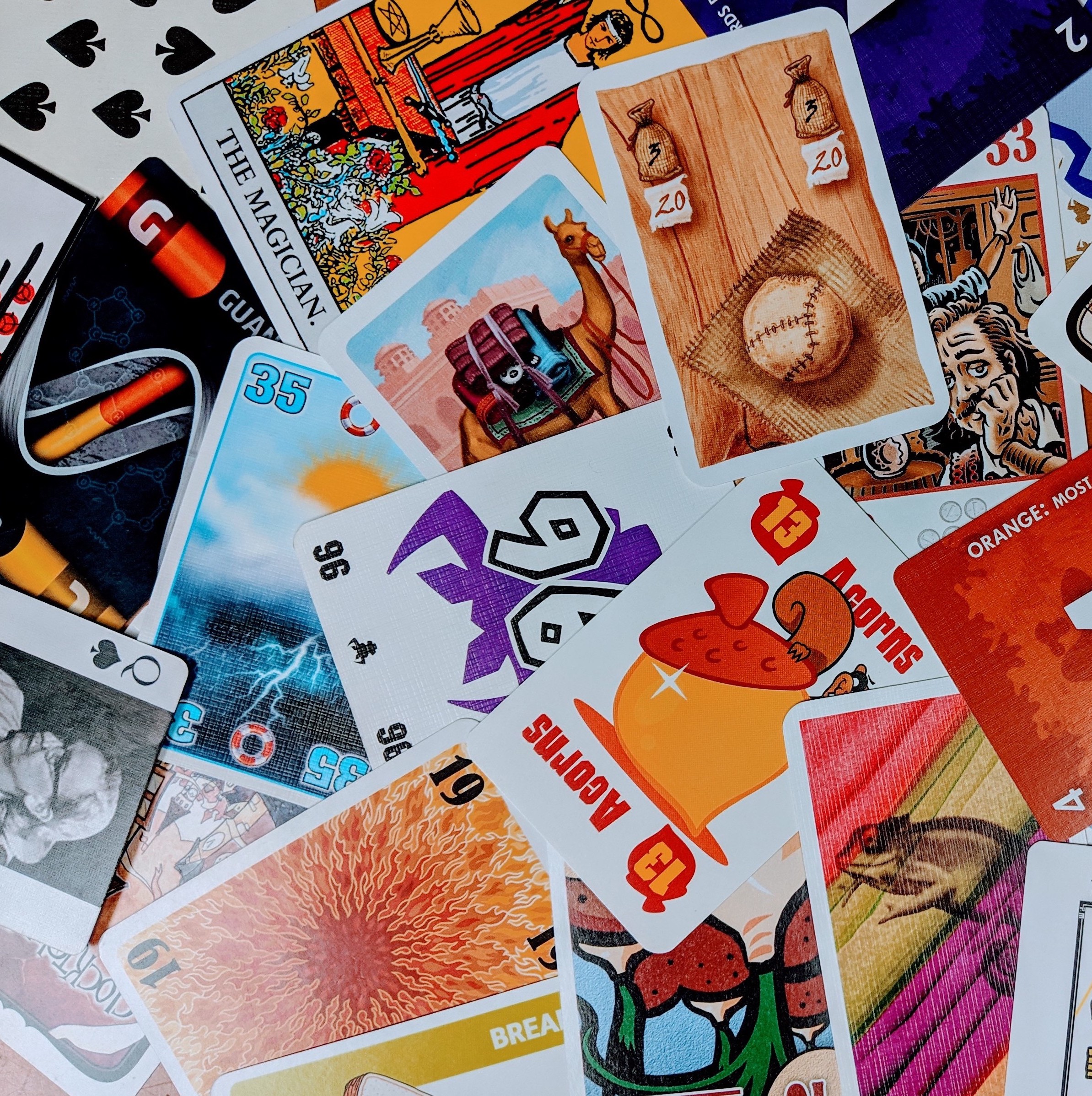
Welcome! I’ve always been fascinated with card games. Both sides of my family would routinely play games when we gathered, with our favorites being Euchre, Tock, Louse Your Neighbor, and Gin Rummy. It amazed me that such variation could arise from the same deck of cards, and when I started designing my own games, inevitably, I would end up exploring new methods of creating a deck of cards and the interesting mechanics these changes allowed.
For the past four years, I’ve been working with some amazing students (Connor Bell, Colin Shaddox, Anna Holmes, and Daniel Sweeney) to build a card game simulation engine called CardStock, along with a new language for programming card games named RECYCLE. This blog is a culmination and continuation of this research project investigating the structure, dynamics, and mechanics of card games.
The first few years were just getting things to work and laying our our framework. By now, we’ve implemented and explored many card games, from classics such as Spades and Hearts to modern card games such as Coloretto, Lost Cities, and The Bottle Imp. And with over 26 games written in RECYCLE, it is time to start diving deeper to find connections and see how these computational tools can help us understand how card games work and maybe how to make better ones.
I’ll be writing articles about once a week, addressing a particular game we’ve simulated with our system, and plan to continue posting for at least a year. For each game, we’ll walk through how it’s coded in RECYCLE, some basic summary statistics, more advanced heuristics for capturing player behavior, and finally discuss any common variants. First up will be Agram, a simple Nigerian trick-taking card game for 2 to 6 players. Go ahead and play a few rounds, before next week’s post is up, and see what you think of how it works.
Through this process, there are a number of research questions I hope to answer:
- At a minimum, is each game fair, balanced, and interesting?
- Can we cluster card games by their rules, structure, or behavior?
- What AI techniques are most feasible for general card game playing?
- Can insights from studying natural card game evolution help computers create new games?
- What are appropriate heuristics for evaluating card games?
Thanks for joining me on this project, let me know if there are other questions you think we could answer, or games you want to see covered!
comments powered by Disqus

